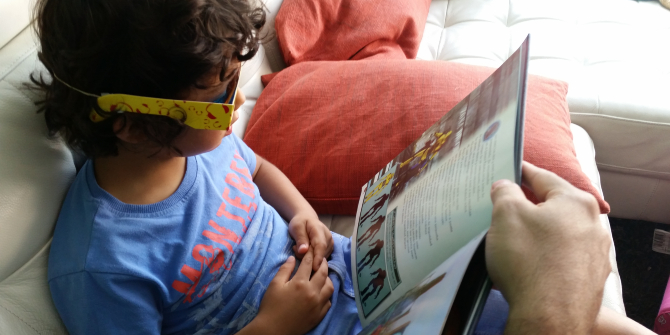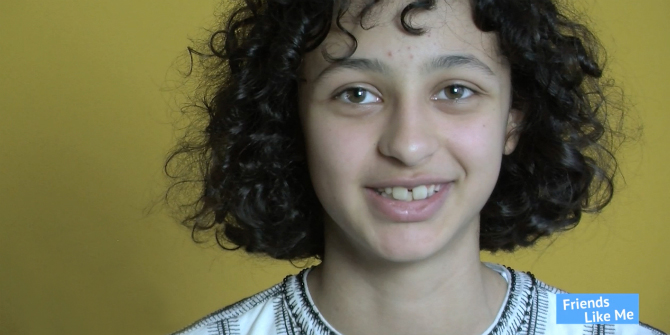 A report from the UK’s communications regulator Ofcom confirms children are avid social media users. Some 99% of children aged three to 17 used the internet in 2021. YouTube was the most popular platform, with 89% of children using it. Meanwhile, half of kids used TikTok, a popular site which allows users to watch and share short videos.
A report from the UK’s communications regulator Ofcom confirms children are avid social media users. Some 99% of children aged three to 17 used the internet in 2021. YouTube was the most popular platform, with 89% of children using it. Meanwhile, half of kids used TikTok, a popular site which allows users to watch and share short videos.
Most social media platforms require users to be aged 13 or older. Nonetheless, the report found that a majority of children under 13 had their own profile on at least one social media app or site. One-third of parents of children aged five to seven said their child had a profile, which rose to 60% among children aged eight to 11.
Overcoming these age restrictions is clearly not a difficult task. Children simply supply a fake age when setting up their account. Meanwhile, some children have multiple accounts on the same platform – one for their friends, and another for their parents.
The report also found that roughly 16% of three and four-year-olds watch videos on TikTok. This could be children being shown videos by a parent or somebody else, and does not mean they have their own account. But they are still being exposed to social media content at a very young age.
With these findings in mind, it’s timely to take a look at what we know about how social media use can affect children across different age groups.
The good and the bad
Engaging with social media can have both positive and negative effects on people, especially children. My colleagues and I have shown that social media use is important for emotional support, community building and self-expression among adolescents, but that it can negatively impact mental health and wellbeing as well.
In our work at the Cyberpsychology Research Group at Nottingham Trent University, we have talked to young adolescents, their parents and teachers about perceived challenges and online harms from social media use. We found that the effects range from spending increasing amounts of time online, behaviour change due to anticipated judgement from peers, and sensory overload, to more serious cognitive and emotional consequences such as attention problems, stress and anxiety.
New research suggests that there appear to be differences across age groups with regards to the effects social media use can have on life satisfaction. In a large UK sample of over 17,000 young people aged ten to 21, researchers found the detrimental effects of high levels of social media use may be especially pronounced at ages 14-15 and 19 for boys, and 11-13 and 19 for girls. Former Facebook employee Frances Haugen revealed in 2021 that internal Facebook research has repeatedly shown detrimental mental health impacts of Instagram use for young girls.
Separately, we know excessive screen time can be associated with symptoms of stress, anxiety, depression and addiction. Recommendations from the American Academy of Pediatrics suggest no screen time for children under two, and a maximum of one hour per day for those aged two to five years, focused on high-quality content (for example, content which is educational). While we don’t know exactly what kind of content young children are watching on social media, it’s unlikely to be high-quality, and could be harmful.
What can we do?
With the recently published Online Safety Bill, the UK government aims to make the UK the safest place in the world to go online. Accordingly, we need to consider the potentially detrimental impacts internet use in general and excessive social media use specifically can have on young people, especially those who are vulnerable.
We need to see increased user protection (such as age verification measures) and harm prevention initiatives (such as school-based education about the benefits and potential harms of social media use). We also need to see the involvement of community and government organisations in education and awareness campaigns, as well as a focus on increased corporate social responsibility, where the industry takes an active approach in designing products with the best interests of the user in mind.
While we discourage over-pathologising everyday behaviour – for example, we shouldn’t assume everyone who spends a few hours online has a problem with their internet use – problematic behaviour needs to be acknowledged and users need to be supported. This can prevent it leading to negative mental health consequences.
Support for young internet users needs to come from parents, teachers, governments and the social media industry. Parents can be encouraged to start an open dialogue with their children, which will build rapport and allow children to open up about their social media use.
Notes
This text was originally published on The Conversation blog and has been re-posted with permission.
This post represents the views of the authors and not the position of the Parenting for a Digital Future blog, nor of the London School of Economics and Political Science.
Featured image: photo by Antony on Flickr





